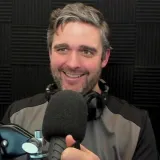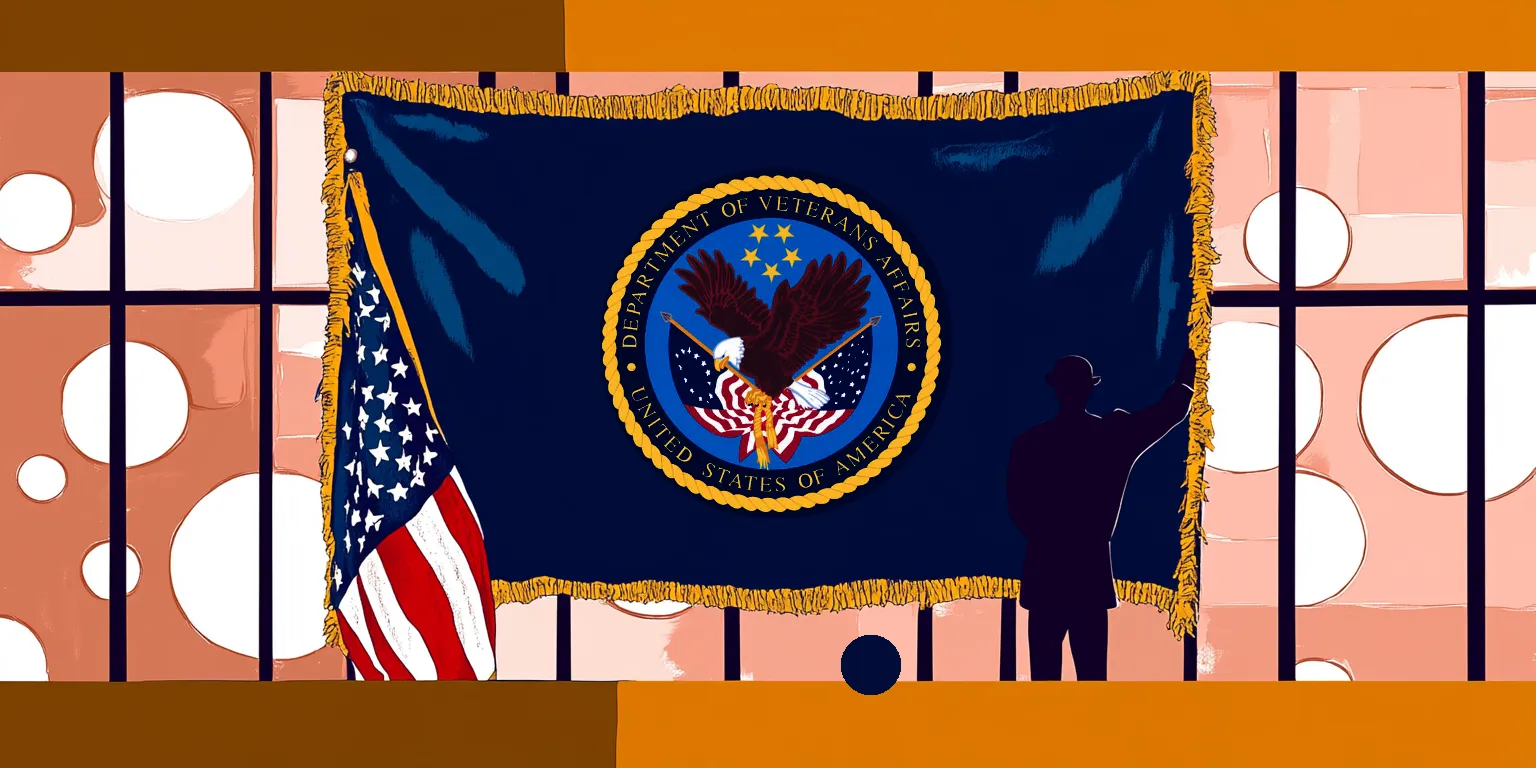In this week’s Psychedelic News Roundup, California Governor Gavin Newsom has signed a new bill, making it easier for medical professionals to prescribe certain drugs like psilocybin and MDMA if federal laws change. This comes as more evidence supports the medical benefits of these substances, especially for mental health issues. Along with this, other bills aim to adjust cannabis policies in the state to ensure better quality control and legal clarity. Outside California, the trend of exploring psychedelic therapies is growing, with states like Missouri looking into the benefits of psychedelics for veterans, and even globally in places like India, the interest in the potential of psychedelic substances is budding.
California’s Legislative Pathway to Psychedelic and Cannabis Reform

Originally reported by Marijuana Moment, California Governor Gavin Newsom recently signed a bill allowing medical professionals to prescribe certain Schedule I drugs like psilocybin and MDMA, should they be federally rescheduled. This development comes amidst growing evidence supporting the therapeutic potential of these substances, with a recent study highlighting MDMA’s efficacy in treating PTSD. The bill, AB 1021, reflects a proactive approach, enabling an immediate response to federal rescheduling, with psilocybin and MDMA, recognized as breakthrough therapies by the FDA, possibly receiving approval for medical use in the near future.
In tandem, Newsom signed another bill, AB 623, adjusting THC variance testing rules for marijuana products to address concerns regarding testing standards for lower THC potency products. This is part of a broader legislative effort to refine cannabis policies, including proposals concerning employment rules regarding marijuana use, legalization of cannabis “cafes,” and environmentally sustainable practices in cannabis cultivation. Yet, another bill proposing the state-level legalization of certain psychedelics awaits Newsom’s decision, reflecting his cautious stance amidst recognizing the “profound” therapeutic potential of psychedelics.
Furthermore, several other cannabis and drug policy reforms are under consideration, aiming to evolve the state’s stance on drug policy and harm reduction. Among the legislation signed by Newsom is a bill granting immunity to individuals possessing personal use amounts of controlled substances if tested for adulterants, and another empowering the State Water Board to act against illicit cannabis cultivation. This legislative activity indicates a shifting perspective on drug policy in California, balancing potential therapeutic benefits, public safety, and the reduction of illicit market activities.(1)
Keep Up with Uncensored Psychedelic Trends
Join our newsletter at Psychedelics Uncensored.
We respect and protect your privacy. By subscribing your info will be subject to our privacy policy . Unsubscribe easily at any time
Missouri’s Psychedelic Therapies: An Emerging Hope for Veterans

As reported by the Columbia Missourian, a surge in psychedelic therapies is being witnessed in Missouri and across the US, with a particular focus on aiding veterans’ mental health. A 2023 Missouri bill aimed to decriminalize and regulate psilocybin use in clinical trials for individuals with PTSD, major depressive disorder, and other conditions—reflecting a growing national trend. The bill, although not passed, reflects the increasing acknowledgment of psychedelics’ therapeutic potential, primarily driven by individuals like Army veteran William Wisner and wellness professional Elaine Brewer, who have personally benefited from such therapies.
Wisner, after finding significant relief from mental health struggles through Ayahuasca, has been advocating for safe psychedelic therapy access for veterans. Similarly, Brewer, affected by anxiety due to her husband’s military service, found solace in psychedelic therapies. She participated in a therapeutic retreat, experiencing substances like MDMA and psilocybin under medical supervision, which substantially alleviated her anxiety. Brewer now assists veterans and their spouses in responsibly exploring psychedelics, emphasizing the importance of preparation and integration work to maximize the therapeutic benefits.
On a broader scale, the shifting attitude towards psychedelics is seen with states like Oregon pioneering controlled psilocybin use and the FDA issuing guidance on psychedelic drug development. However, the DEA’s classification of psilocybin as a Schedule 1 drug hinders clinical research and access to these substances, impacting individuals like Brewer’s husband. The evolving legislative landscape, propelled by positive personal experiences and emerging scientific evidence, highlights a gradual move towards re-evaluating and possibly integrating psychedelic therapies in mainstream mental health treatment, especially for the veteran community enduring unique mental health challenges.(2)
Microdosing Psychedelics: A Balancing Act Between Benefits and Heart Health Risks

The trend of psychedelic microdosing, known for purported benefits like enhanced creativity and improved mood, has come under scrutiny in a recent scientific review in the Journal of Psychopharmacology regarding its long-term health risks. According to an article from PsyPost, the primary concern is the potential link between chronic microdosing and Valvular Heart Disease (VHD), a serious condition affecting heart valves and potentially leading to heart failure in severe cases.
Keep Up with Psychedelic Trends
Get uncensored psychedelic news, events, and updates. Join Psychedelics Uncensored!
We respect and protect your privacy. By subscribing your info will be subject to our privacy policy . Unsubscribe easily at any time
The scientific apprehension arises from the interaction of microdosed psychedelics with the 5-HT2B receptor in the body, associated with serotonin neurotransmitter regulation, and notably, heart physiological processes. Persistent activation of this receptor has been previously linked to VHD development. The review closely examined common psychedelics used in microdosing like LSD, psilocin, mescaline, DMT, and MDMA, focusing on their interaction with the 5-HT2B receptor. Among these, LSD and psilocin were found to have a potential risk due to their potency in interacting with the receptor. Conversely, mescaline and DMT exhibited minimal safety margins, but their risks were not as clearly defined. MDMA presented the highest risk, with existing cases of VHD in long-term users.
Despite these findings, the review acknowledged a lack of concrete scientific evidence, as no thorough studies, apart from MDMA, have specifically explored this potential health risk. The variety of lesser-known psychedelics used for microdosing, each with unique safety profiles, and varying microdosing schedules among users, further complicates the assessment of VHD risk. The researchers underline the necessity for further studies to comprehensively understand this risk, especially given the growing popularity of microdosing. Although no widespread reports of VHD in microdosers exist currently, the researchers caution this might be due to the relatively recent emergence of microdosing as a trend, urging a deeper exploration to ascertain the long-term health implications.(3)
India’s Inaugural Shroom Sabha: Unveiling a Fungal Frontier

Coming to us from Hightimes, the first-ever mushroom festival in India, dubbed the Shroom Sabha, took place from September 15-18 in the lush, fungally diverse forests of Wayanad, Kerala. The festival aimed to spotlight India’s rich but underexplored legacy and potential in the mushroom domain, amidst the burgeoning global interest in mushrooms for their culinary, medicinal, and psychedelic properties.
Despite a rich history of mushroom utilization dating back to ancient times, modern India has remained relatively conservative regarding mushrooms, particularly psychedelic ones. The Shroom Sabha brought together mycophiles and mycopreneurs from across India to share knowledge, practices, and celebrate the fungal kingdom. Amidst talks and workshops, there were mushroom identification forays into the wild, and presentations by startups like Nuvedo focusing on the indigenous and global entheomycological traditions.
The festival also showcased promising mycomaterial prototypes like Reishi leather and mycelium bowls, hinting at the sustainable biomaterials potential mushrooms hold. Notably, the medical potential of psilocybin mushrooms was discussed in-depth by Dr. Gokul Raj, emphasizing a blend of traditional Indian wellness principles with modern psychedelic science.
As Shroom Sabha spotlighted, the mushroom revolution in India is budding, with a growing community eager to explore and preserve the country’s fungal heritage while aligning with global advancements in mycology. The event signaled a hopeful trajectory toward integrating mushrooms into India’s socio-cultural and economic fabric, tapping into their diverse benefits while honoring the nation’s unique ethnomycological legacy.(4)
Psychedelic Treatment Shows Promise in Improving Mental Health and Cognition among Special Ops Veterans

Coming to us from the Ohio State University Newsroom, a recent analysis conducted on the treatment of U.S. special operations forces veterans at a clinic in Mexico has highlighted the potential benefits of psychedelic drugs in improving mental health and cognitive functioning. The veterans were administered a one-time treatment of two psychedelic substances: ibogaine hydrochloride, derived from a West African shrub, and psilocin, a compound secreted by the Colorado River toad. The findings indicate significant reductions in symptoms of depression, anxiety, and post-traumatic stress disorder (PTSD), alongside notable improvements in cognitive functions, particularly beneficial for those with traumatic brain injury.
The study, spearheaded by researchers from The Ohio State University, emphasizes the unique challenges faced by special operations forces veterans, who are often exposed to repeated traumatic events as part of their duty, leading to a higher predisposition to mental health issues and cognitive impairments. The observed improvements in cognitive functioning linked to brain injury were deemed highly significant, shedding a new light on how psychedelics could potentially aid in a variety of health domains. The veterans, most of whom had served post 9/11, sought treatment for a range of issues including memory problems, depression, anxiety, PTSD, and sleep disorders, with 86% of them reporting head injuries.
This analysis underscores the necessity for further research to explore the underlying mechanisms contributing to the observed improvements, whether they stem from alleviated mental health symptoms, biological alterations in brain signaling, or a combination of both. The study’s lead author, Alan Davis, emphasized the importance of psychological flexibility brought about by the treatment, which might be instrumental in reducing mental health symptoms. The encouraging outcomes from this analysis bolster the argument for continued examination of psychedelic-assisted therapies in U.S. clinical trials, particularly for populations with complex trauma histories such as military veterans.(5)
The recent actions by Governor Newsom in California highlight a growing trend of re-evaluating laws around psychedelics and cannabis, based on emerging evidence of their benefits. Similar explorations are happening in other states and countries, showcasing a global shift towards understanding and potentially accepting these substances for medical and other uses. Whether it’s adjusting cannabis testing standards, exploring psychedelic therapies for veterans, or diving into the cultural and medical potential of mushrooms in India, the landscape is shifting. Through the lens of legislation, clinical evidence, and cultural acceptance, the dialogue around psychedelics and cannabis is becoming richer and more nuanced.
Sources

1. Jaeger, K. (2023, October 2). California Governor Signs Bills To Let Doctors Prescribe Psilocybin And MDMA If They’re Federally Rescheduled And To Change Marijuana Testing Rules. Marijuana Moment. https://www.marijuanamoment.net/california-governor-signs-bills-to-let-doctors-prescribe-psilocybin-and-mdma-if-theyre-federally-rescheduled-and-to-change-marijuana-testing-rules/
2. Strzalka, K. (2023, October 4). Psychedelic therapies gain steam in Missouri, nationwide. Columbia Missourian. https://www.columbiamissourian.com/news/higher_education/psychedelic-therapies-gain-steam-in-missouri-nationwide/article_648202c0-45d5-11ee-af9a-d7f1ab0efbab.html
3. Dolan, E. W. (2023, October 1). Scientists raise concerns about the potential link between chronic microdosing of psychedelics and valvular heart disease. PsyPost. https://www.psypost.org/2023/10/scientists-raise-concerns-about-the-potential-link-between-chronic-microdosing-of-psychedelics-and-valvular-heart-disease-213855
4. Walker, D. (2023, October 2). India Carves Out Its Own Lane in the Shroom Boom. High Times. https://hightimes.com/psychedelics/india-carves-out-its-own-lane-in-the-shroom-boom/
5. Psychedelics improve mental health, cognition in special ops veterans. (n.d.). Psychedelics Improve Mental Health, Cognition in Special Ops Veterans. Retrieved October 5, 2023, from https://news.osu.edu/psychedelics-improve-mental-health-cognition-in-special-ops-veterans/
This material is not intended as a replacement or substitute for any legal or medical advice. Always consult a medical professional about your health needs. Psychedelics are widely illegal in the United States, and readers should always be informed about local, state, and federal regulations regarding psychedelics or other drugs.

 David Connell
David Connell





 Ross Dillon
Ross Dillon 
